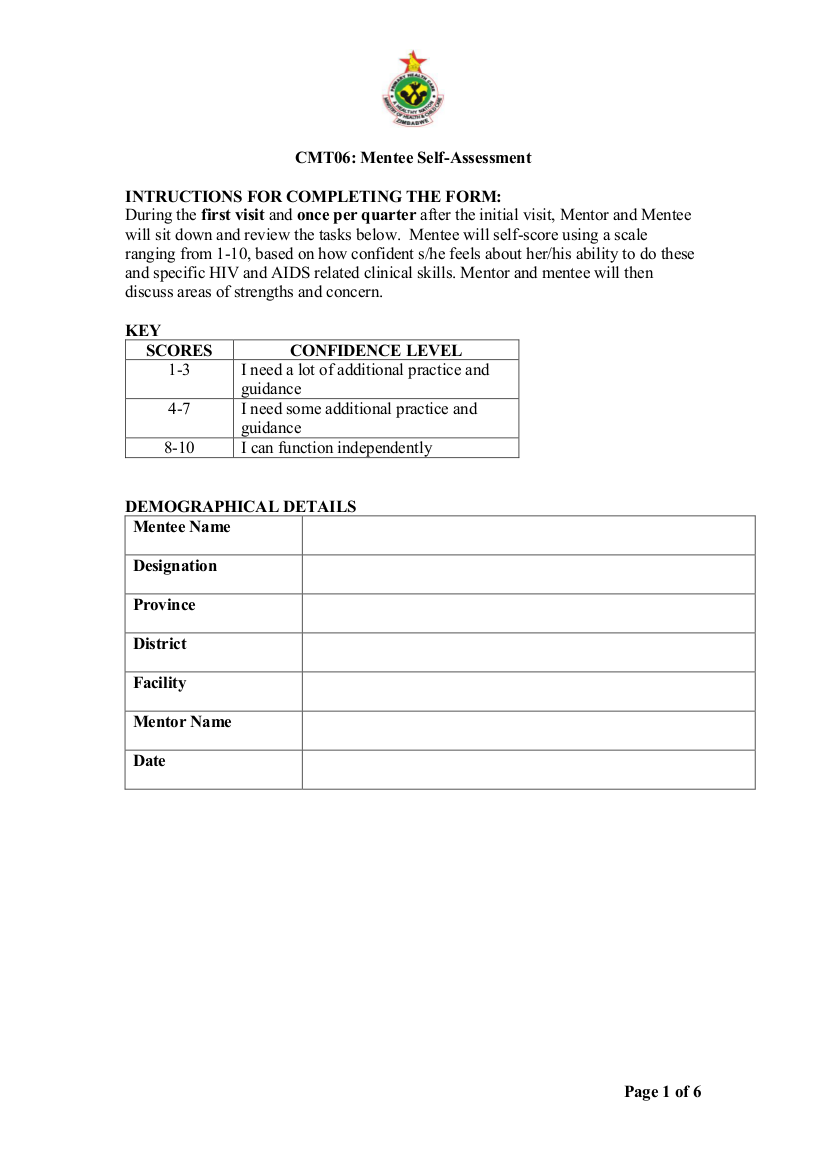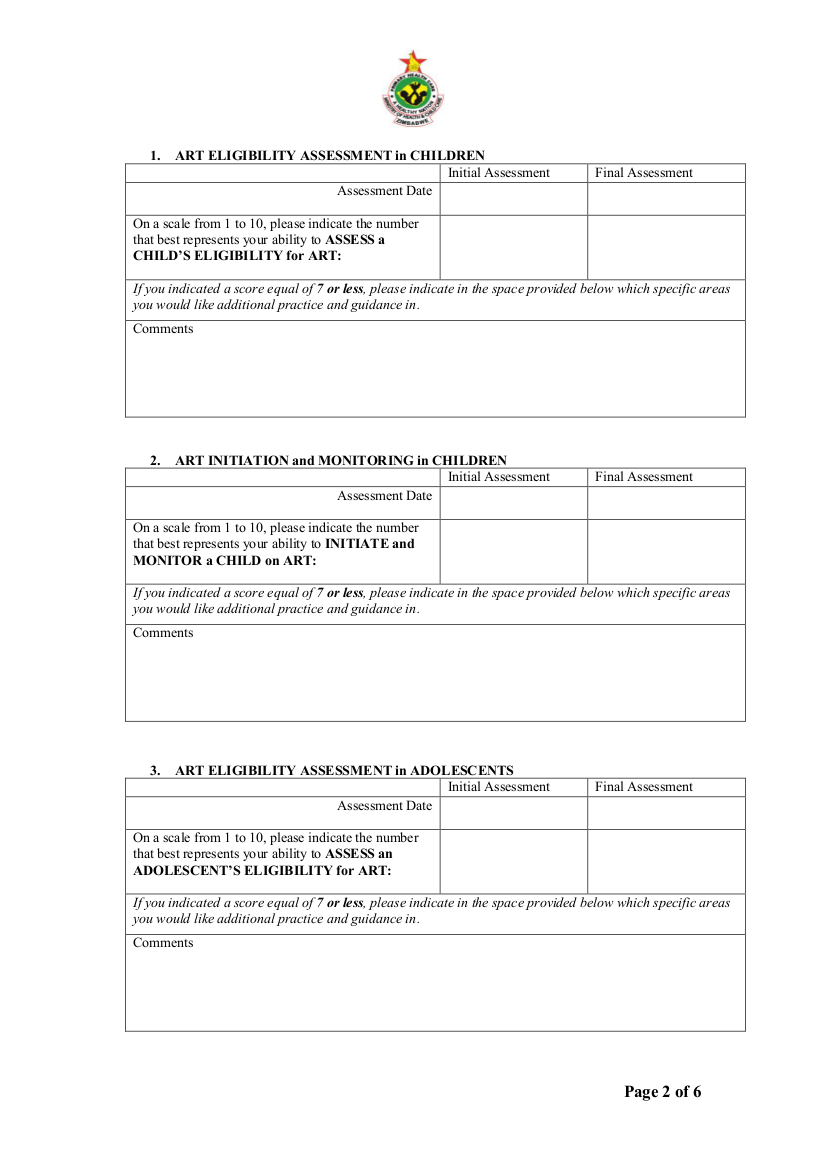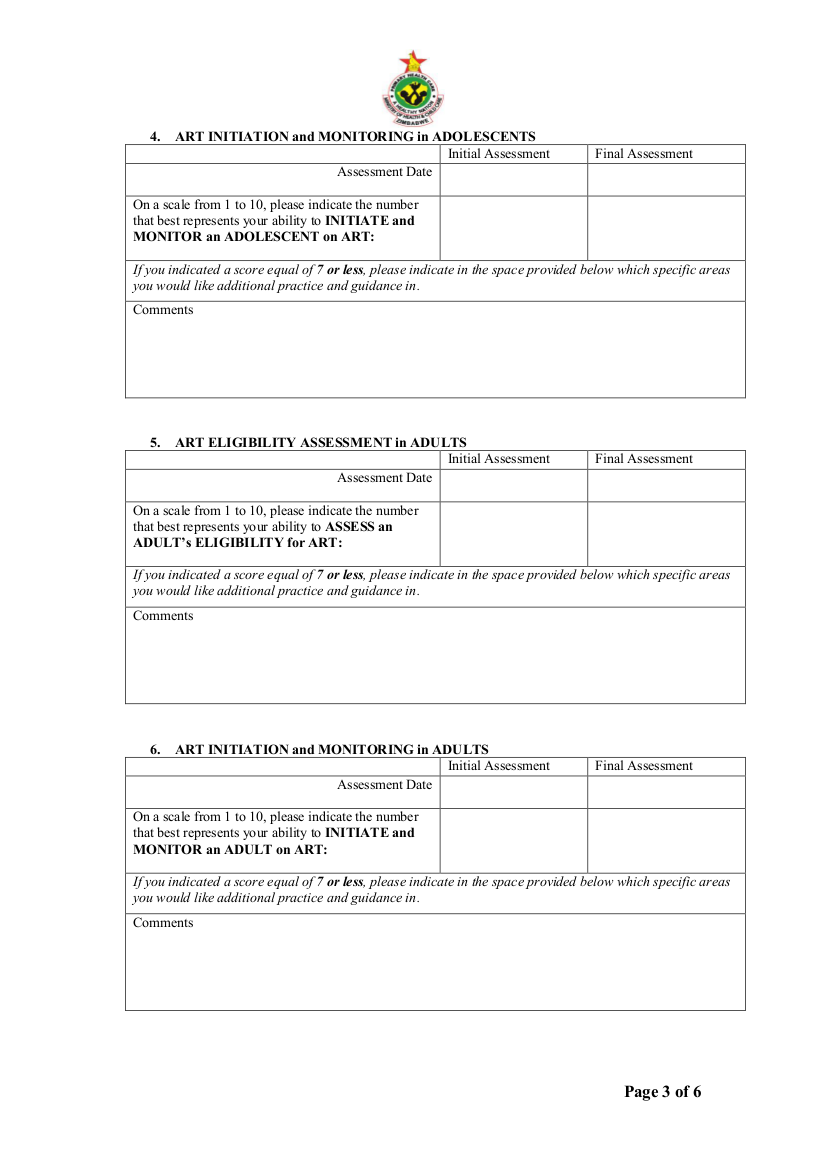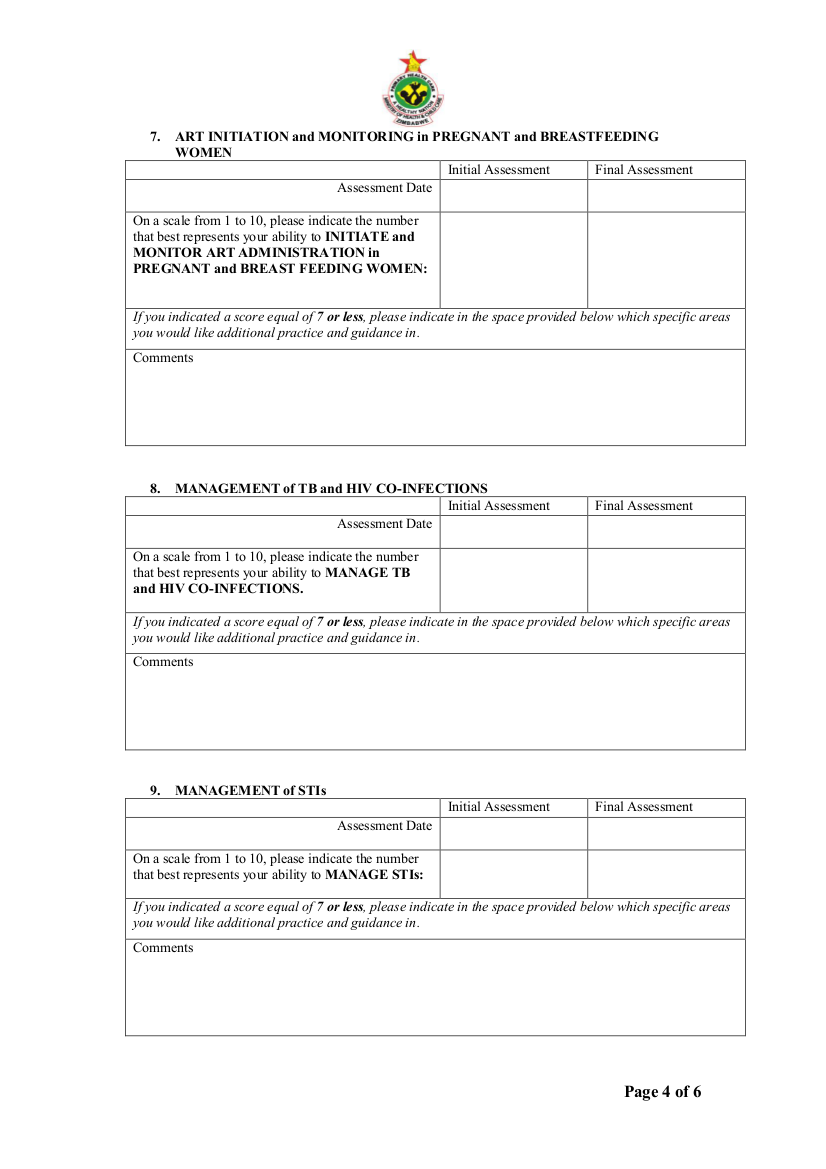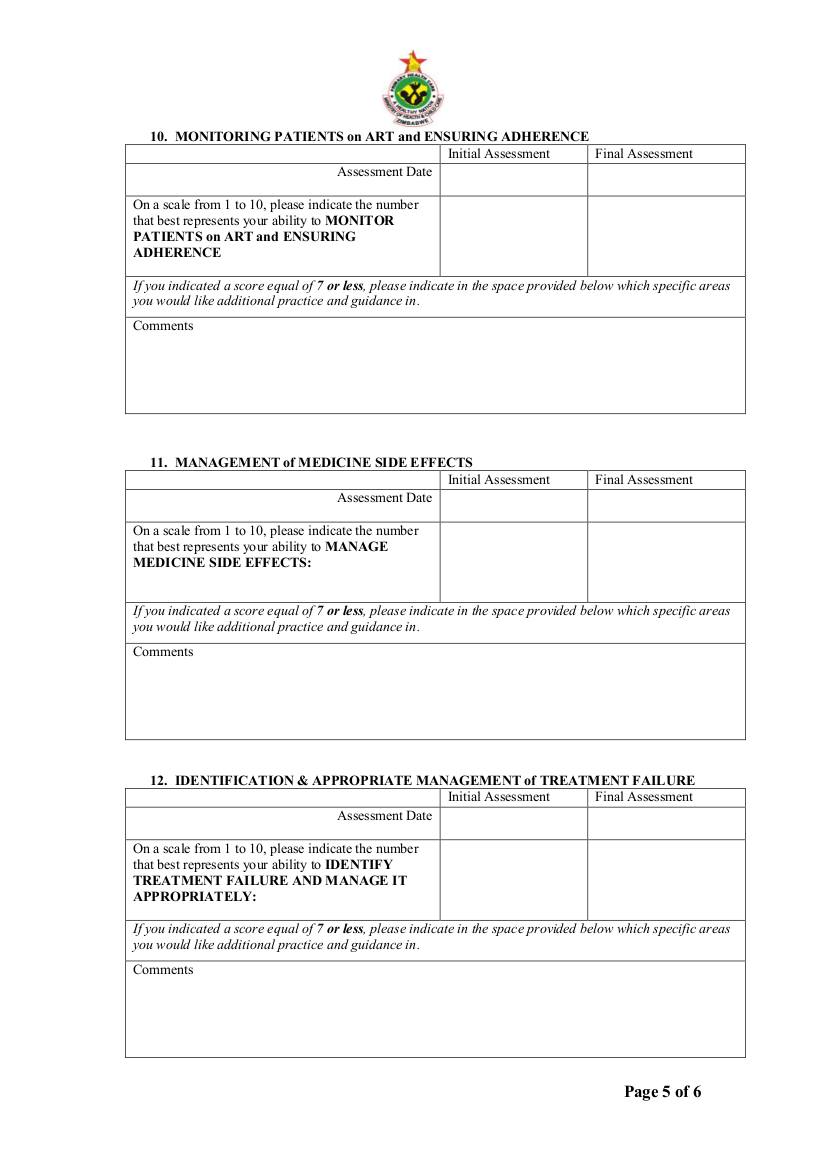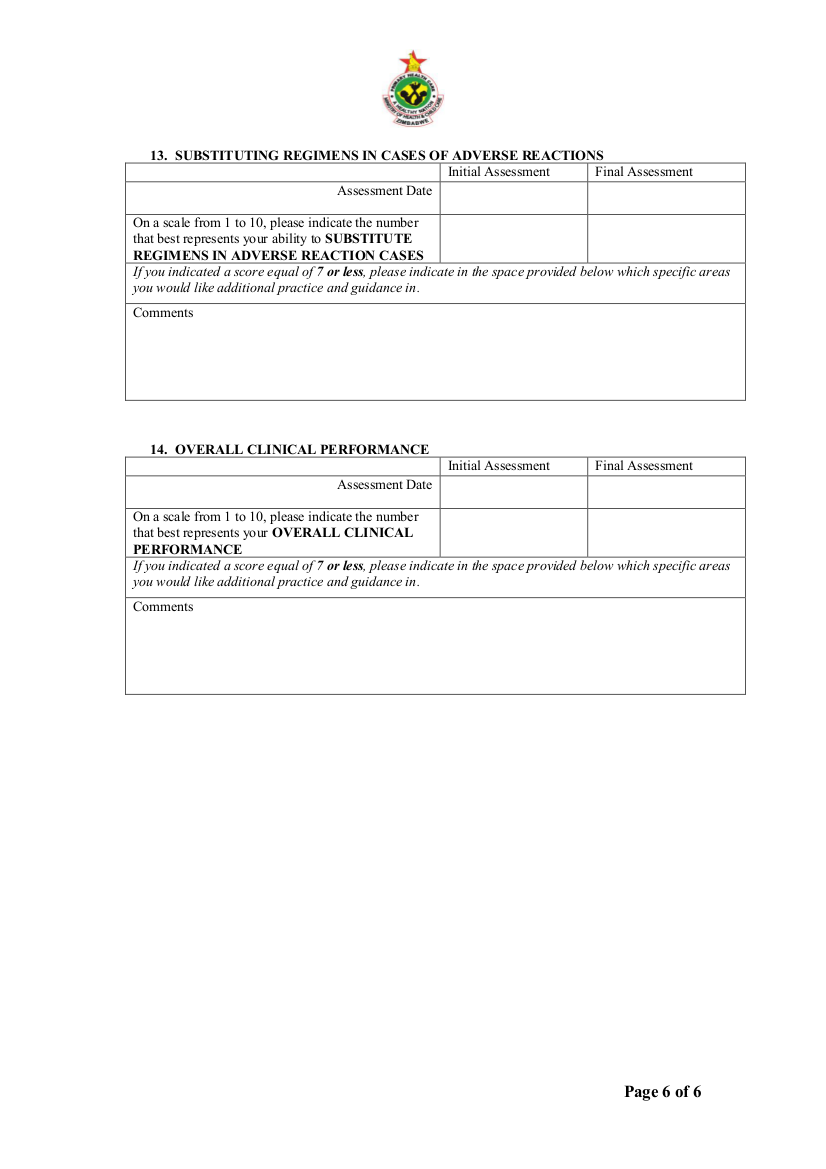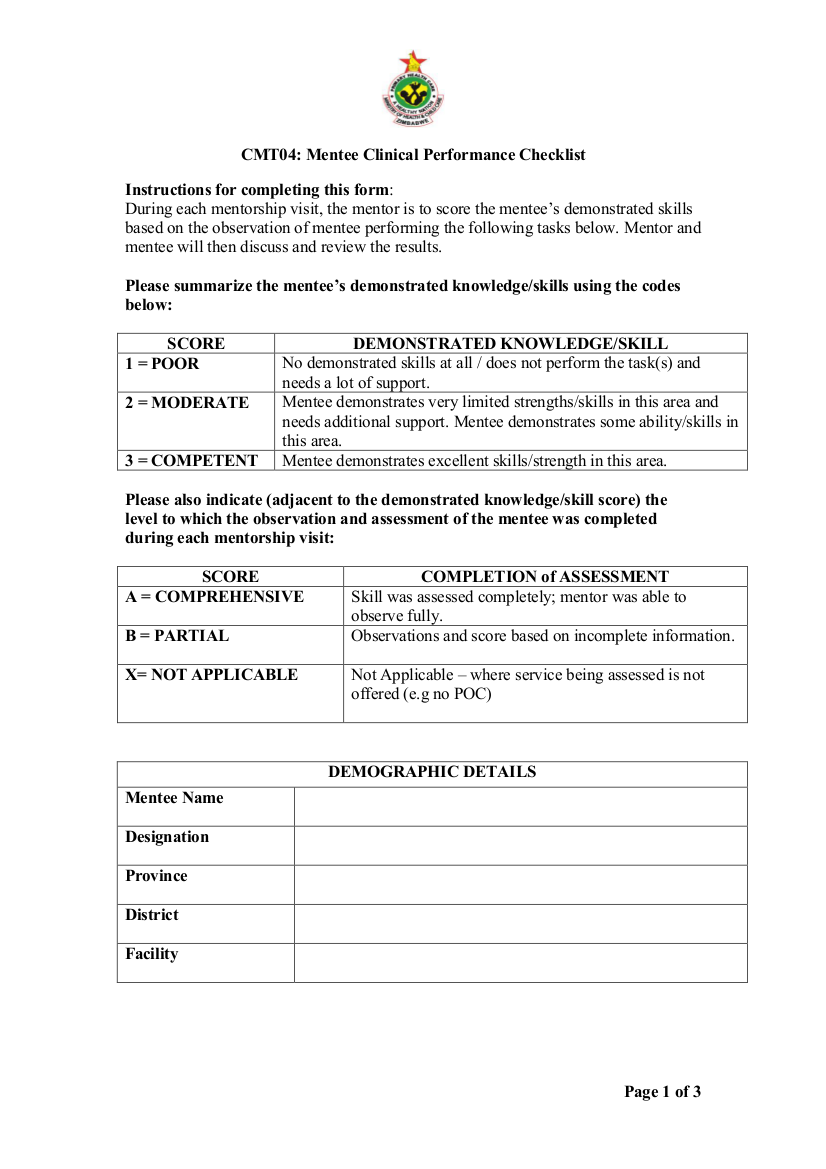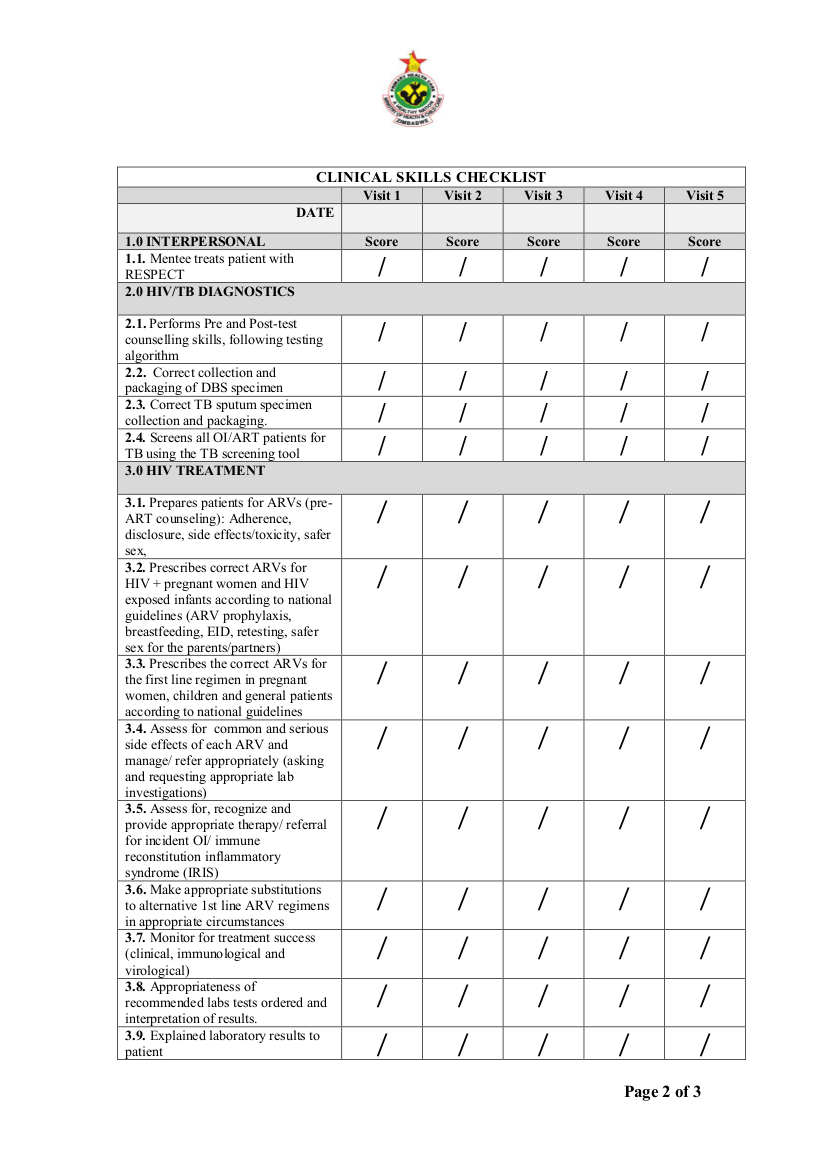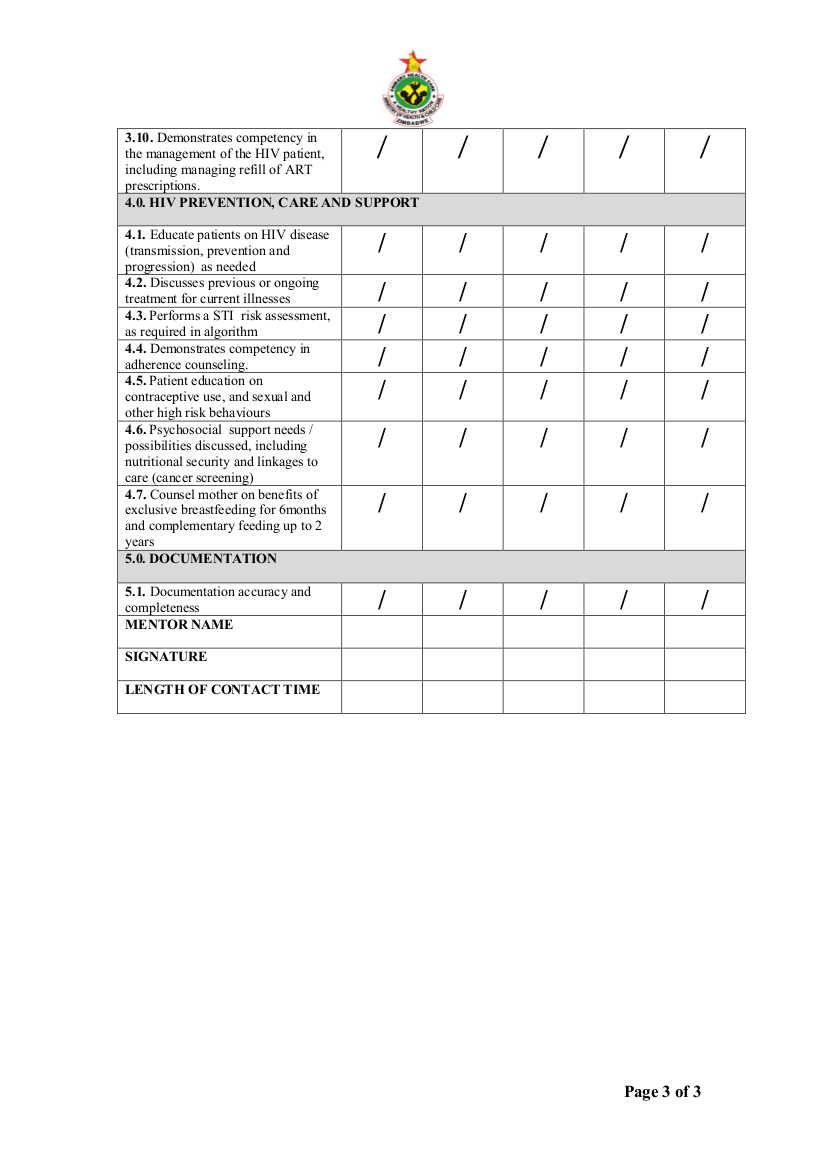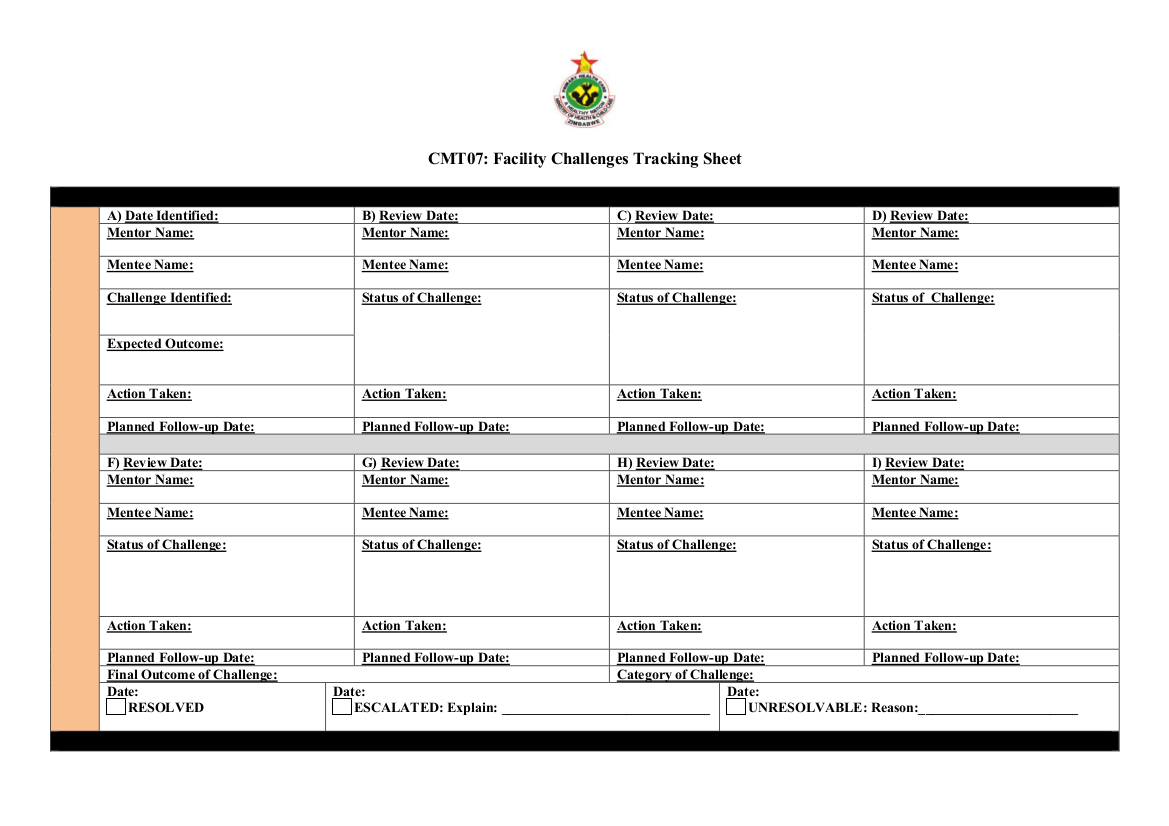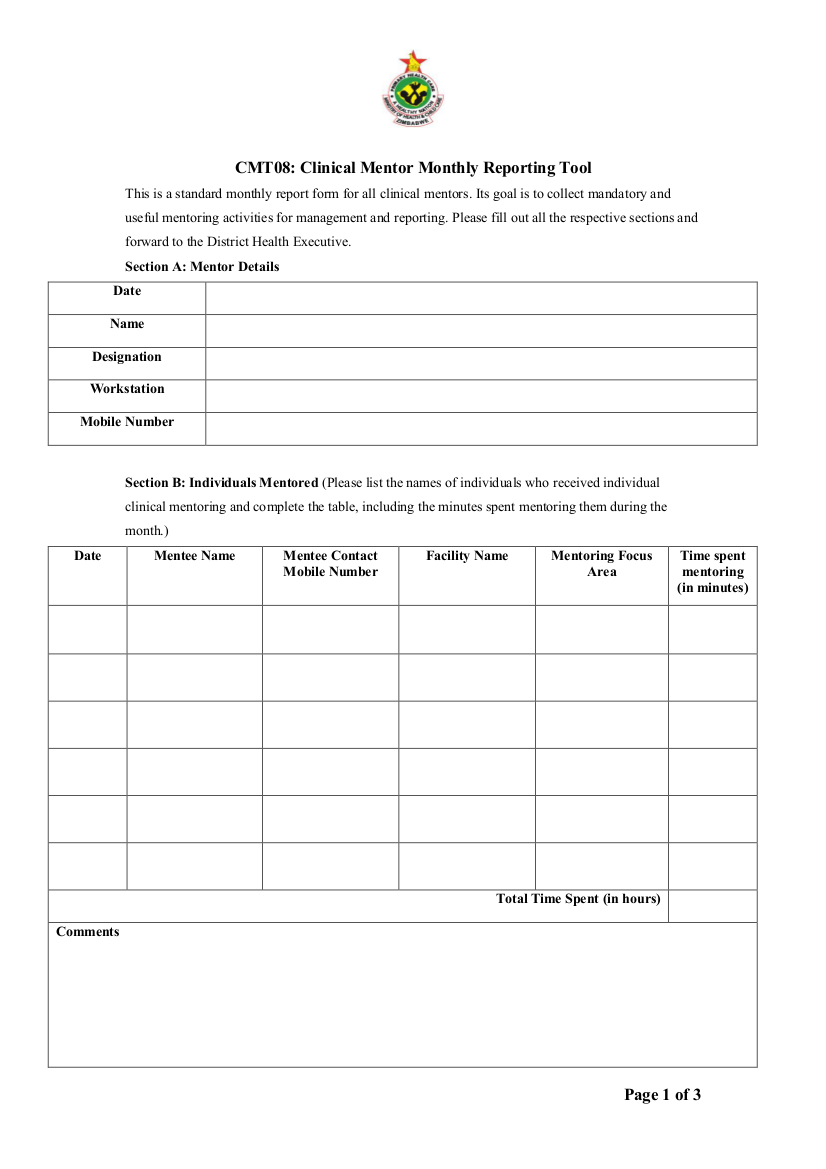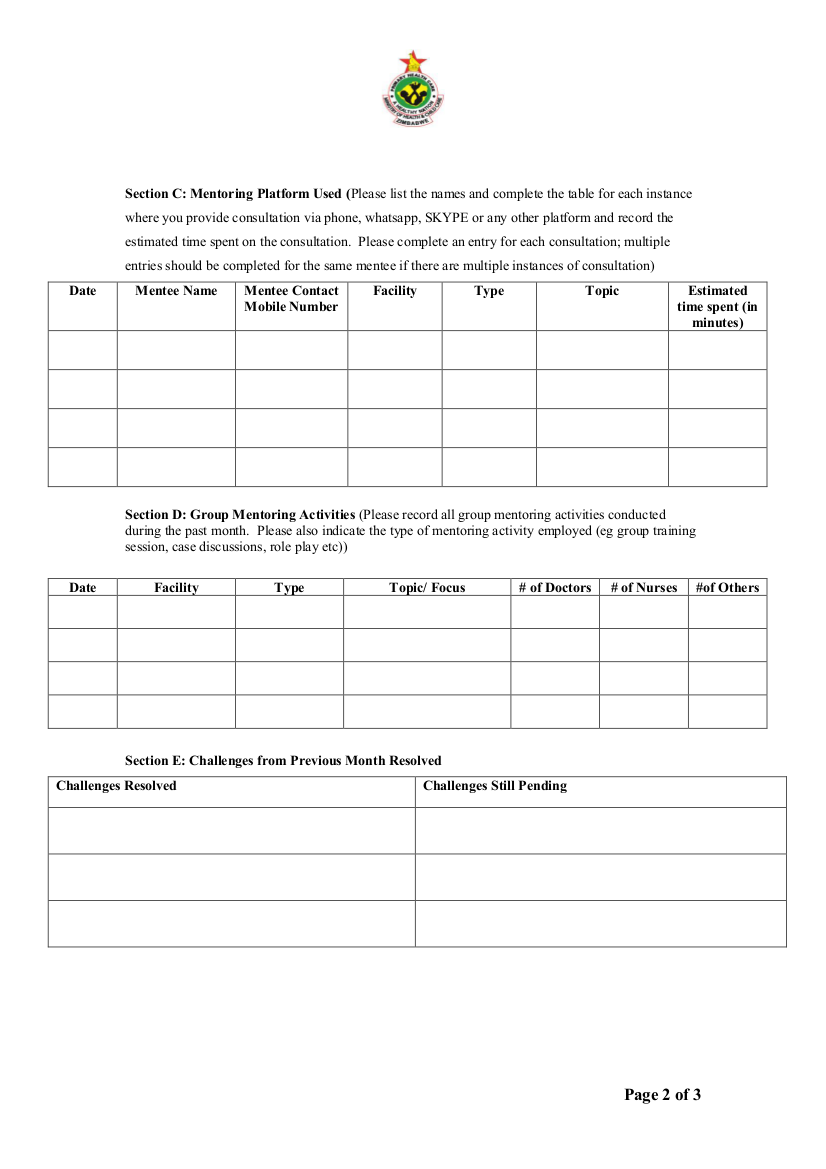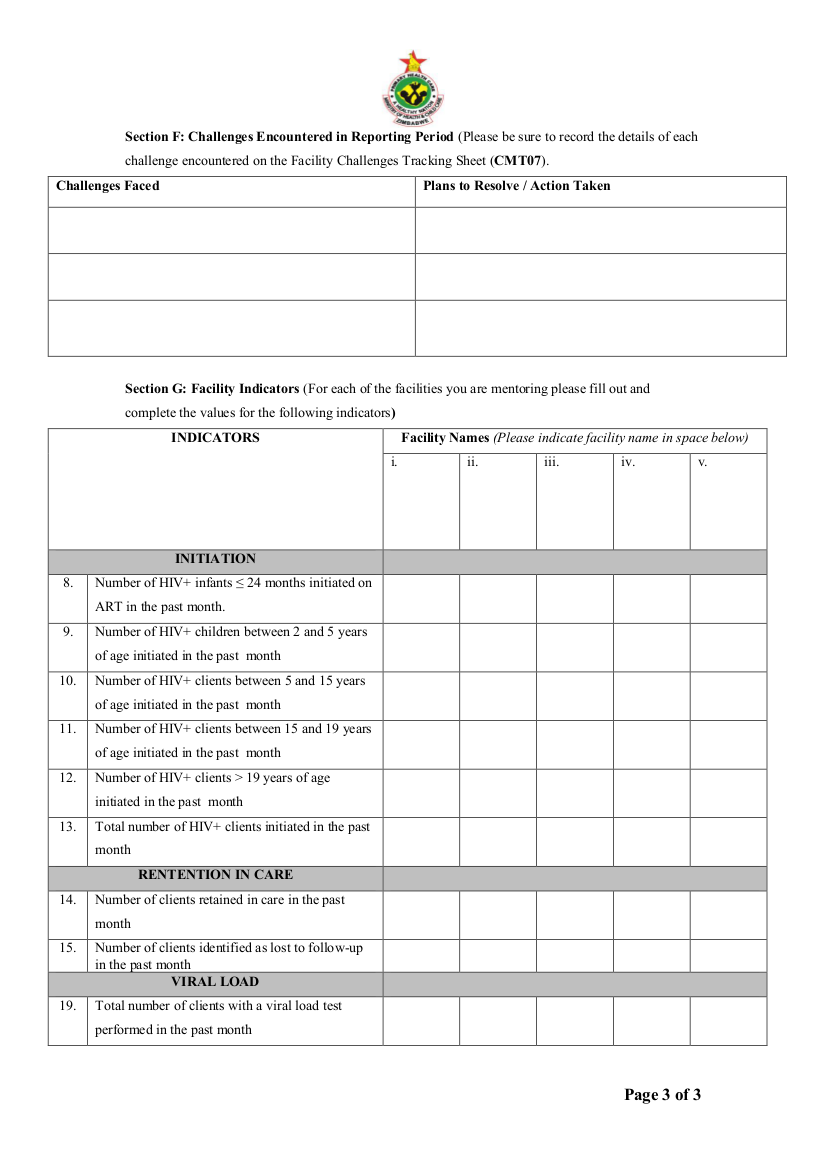How To Use the Learning Bank: Example Scenario
Instructions: Read through this case to understand how you can use the Learning Bank as a companion to the Clinical Mentoring tools to create effective learning experiences for mentees.
Emmanuel is a clinical mentor working with mentees in the HIV/ART clinic at a district health facility. Last week he met with a new nurse named Carmen. She completed her Mentee Self-Assessment form and rated herself a 5 for Management of TB/HIV Co-Infection. This rating suggests that Carmen feels a need for support in these areas.

The next day, Emmanuel planned to observe Carmen using the Clinical Performance Checklist related to HIV/TB Diagnostics. When he pushed open the front door to the clinic and walked through the waiting room, he saw Carmen conducting a sputum collection on a patient while there were other patients present. He smiled at the patient, greeted Carmen, and asked that she meet him in the lab when she was done collecting the sample. Once in the lab, Emmanuel noticed that she had not written the name of the patient, TB suspect number, date, name of the clinic or the test requested on the label before collecting the specimen. After Carmen completed packaging the container and sending it to the lab, he also noticed that she neglected to complete the Sputum Examination Form properly. She did not tick if this was the 1st or 2nd specimen. He pointed that out to her before she finished and she ticked 1st specimen. He asked Carmen if she could tell him how she had explained to the patient how to collect a good quality sample. Carmen said she had asked the patient to take a deep breath, then cough and spit into the container. Emmanuel thanked Carmen for their discussion, and suggested that they plan to meet in the afternoon to discuss this patient encounter further. She agrees to meet him at 16:00 when things slow down at the clinic.
Next, Emmanuel took a few minutes to complete the Clinical Performance Checklist, rating his first visit with Carmen as a ‘2B’. The ‘2’ was for demonstrated knowledge and skill’ indicating that ‘mentee demonstrates very limited strengths/skills in this area and needs additional support’ and, the ‘B’ was for ‘completion of assessment, indicating, observations and score based on incomplete information’, since he entered the patient encounter while Carmen was collecting the sputum. Emmanuel referred to his tablet to review the TB/HIV Co-Infections topic, Sputum Collection subtopic section of the Clinical Mentor Learning Bank. He plans to conduct three activities and review one resource with Carmen. He decides not to conduct the assessment since feels he was able to assess her skills well enough today.

Emmanuel and Carmen were able to meet in an empty examination room since there were no other patients in the clinic. Emmanuel shows Carmen the new tablet that he received as part of the Clinical Mentor training. He tells her there are some great learning activities they can go through together to improve her skills in HIV/TB co-infection. Since he observed her conducting a sputum specimen collection, he would like to start with that activity today.
First, Emmanuel conducts the Clinic Tour activity, which asks Carmen to walk around the clinic and show him places that would be appropriate sputum collecting spots and explain why. Emmanuel discovers that Carmen chose the waiting room because she did not think the patient really had TB and she was also worried that he would leave without giving the specimen since he was very upset that he had to wait so long to be seen. When they returned to the office, Emmanuel asked Carmen to review her assessment of the patient including her physical exam findings. Carmen’s assessment includes possible TB but also possible bacterial pneumonia. Emmanuel explains that despite her assessment of pneumonia, she must always presume TB until it is proven otherwise. The sputum collection must be done in an area that does not put other patients, herself, or her colleagues at risk.
Next, Emmanuel decides to conduct the role play activity where he will be a presumptive TB case, and Carmen will have to bring him to an area that is safe for collection and instruct him how to collect a sputum specimen. He shows her the tablet so that she can read the instructions for her part in the role play. He is careful not to tap on the part of the instructions that are only for him. Emmanuel has always enjoyed conducting role play exercises with his mentees. He likes to include challenging patient behaviors that the mentee may encounter. It gives him more information about how a mentee handles difficult patients. For this role play, he has trouble understanding how to give a good specimen vs. spitting into the container. Carmen refines her instructions based on what Emmanuel is doing and not doing. She really engaged in the role play and when it was over, she thanked Emmanuel for the interesting and enjoyable exercise. Emmanuel provided Carmen with constructive feedback, emphasizing her strengths along with pointing out areas for improvement.
Finally, Emmanuel taps the Resources section of the Learning Bank to discuss with Carmen the Request for Sputum Examination Form to review the information needed by the lab. He emphasised again the importance of thorough documentation so lab personnel know information about the patient they are testing.
Carmen tells Emmanuel that she is not the only nurse in this clinic that is not properly collecting sputum or completing the proper lab forms. Emmanuel uses the Facility Challenges Tracking Sheet to document this challenge and plans on scheduling an on-site training to address this issue. He plans on using the Discussion activity in the Sputum Collection section to discuss and address barriers to properly collecting sputum. He will track the progress of this issue using the Facility Challenge Tracking Sheet until he has a resolution.
Emmanuel notes a second challenge with poor documentation. He also plans on addressing the components of safe sputum collection including documentation on the label prior to the collection and proper documentation of the Sputum Examination Form.
Emmanuel completes the Clinical Mentor Monthly Reporting Tool at the end of the month. For his work with Carmen, he notes in Section B the focus of the mentoring he provided and his recommendations. He also notes in Sections E and F the progress of the staff properly collecting sputum.
